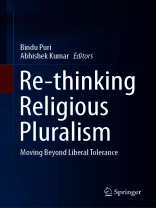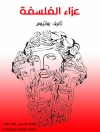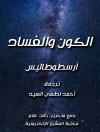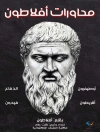This book combines the mainstream liberal arguments for religious tolerance with arguments from religious traditions in India to offer insights into appropriate attitudes toward religious ‘others’ from the perspective of the devout. The respective chapters address the relationship between religions from a comparative perspective, helping readers understand the meaning of religion and the opportunities for interreligious dialogue in the works of contemporary Indian philosophers such as Gandhi and Ramakrishna Paramhansa. It also examines various religious traditions from a philosophical viewpoint in order to reassess religious discussions on how to respond to differing and different religious others. Given its comprehensive coverage, the book is of interest to scholars working in the areas of anthropology, philosophy, cultural and religious diversity, and history of religion.
Inhoudsopgave
Rethinking the Relationship Between Religions: Moving Beyond Liberal Tolerance.- Pluralism About What? Religion as Belief and Identity.- Religious Violence in a World of Conflicts: A Phenomenological Narrative.- Philosophical Hermeneutics of/for Religious Pluralism: Some Methodological Considerations.- Religious Pluralism and Ethics.- Some Reflections on the tenability of Pluralism: Transformation and Trivialization of Religions.- Mādhvas Tolerating Rival Truth Claims: Disagreement, Dialogue and Discernment.- Religion: One and Many.- Tagore and Gandhi: On Diversity and Religious ‘Others’.- A Gandhian Solution to The Problem of Religious Intolerance.
Over de auteur
Bindu Puri is a Professor of Contemporary Indian Philosophy at the Centre for Philosophy, School of Social Sciences, Jawaharlal Nehru University, India. Her areas of interest are contemporary Indian philosophy and in moral and political philosophy. She has published over 40 research papers, in philosophical and interdisciplinary journals of international repute and edited anthologies. She has published six edited books and authored two monographs:
Gandhi and the Moral Life (2004) and
The Tagore-Gandhi Debate: On Matters of Truth and Untruth (Springer Publications in the series: Sophia Studies in Cross-cultural Philosophy of Traditions and Cultures, January 2015).
Abhishek Kumar holds a Ph.D. degree from the University of Delhi. He was awarded a Postdoctoral Research Fellowship by the Indian Council of Social Science Research, New Delhi. He has taught philosophy in temporary capacities in various University of Delhi colleges and now holds a Guest Lectureship at Centre for Philosophy, Jawaharlal Nehru University. His main areas of interest are social and political philosophy and ethics.











